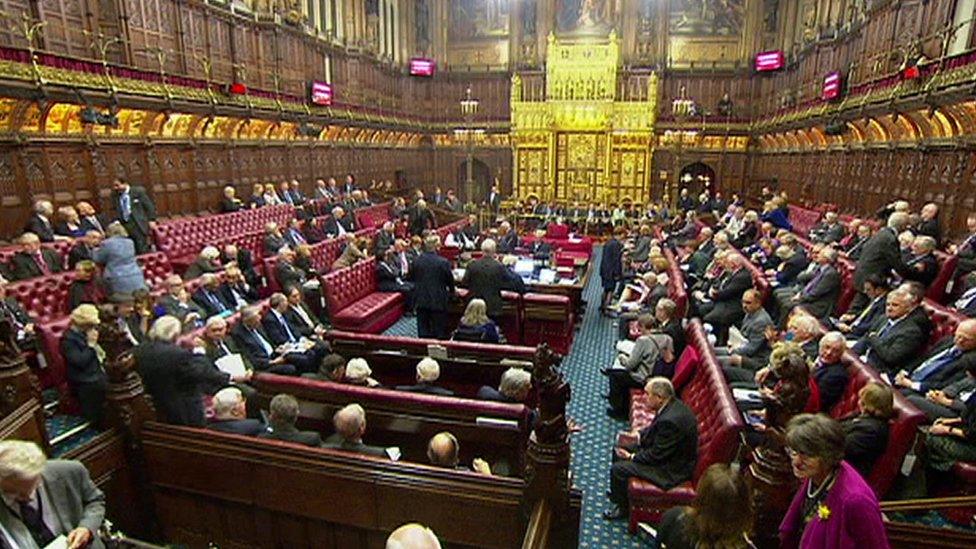They lost - now what?
- Published

Down - but they don't think remotely out. The government tonight was beaten in the Lords on Brexit.
Peers voted by a healthy margin to try to force the government to give a guarantee to EU citizens living here that they will be protected after we leave the EU, and to give it now. But what next?
Government sources tonight sound relaxed.
They knew this vote was likely to go against them. And it's an issue that the government believes it has a clear defence on.
Indeed, even during Theresa May's leadership campaign before she moved into Number 10, she articulated the same position. In her view, it would be unwise to guarantee the rights of the three million or so EU citizens in this country, before other EU countries are ready to do the same for British citizens abroad.
For her opponents that's distasteful, immoral even, because many people who have made their lives in the UK could be used, so the phrase goes, as "bargaining chips" in a negotiation.
There is little sign however of the government giving way despite the defeat.
Tiny majority
The chances of that changing depend on what happens when the bill gets back to the House of Commons, where MPs will have a chance to agree with the Lords and cause real trouble for the government, or throw the Lords' decision out.
Although the government has a tiny majority, it doesn't seem at this stage that there is a significant chance of that happening.
MPs may not, in any great number, stand up to ministers this time, even though the government may appear deaf to concerns about millions of people who live here - and runs the risk of leaving itself open to that accusation.
But a more technical argument could hold sway.
Ministers have consistently argued that the Article 50 bill, the law that will be used to start the process of leaving the EU, is only about allowing the government to (as Theresa May might say) "get on with the job".
It is not about any of the big decisions - what will our immigration system look like, what will our trade deal with the EU look like, how will fishing and farming work - a myriad of questions that will be discussed and fought over in the next couple of years as the Brexit process grinds on.
'Meaningful' vote
And for some rebel Tory moderates, an oxymoron if ever there was one, that case holds some sway. Just like anyone else in politics, they want to pick their battles. And the Article 50 battle is about process.
For precisely that reason the government could face more serious trouble over the prospect of giving Parliament a "meaningful vote" on the final Brexit deal - giving the Lords and then the Commons a concrete guarantee in law that they will have a final say on the terms of a deal at the end of the negotiations.
If the Lords, as is likely, beat the government on that issue next week, they may find greater support among MPs willing to make a stand.
But this first defeat, while symbolic and important, has not tonight created any sense of government panic. Theresa May is not someone who is easily budged, or prone to sudden changes of heart.
But she is also, even seven months in, not used to defeat. At least not yet.